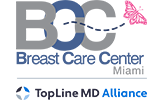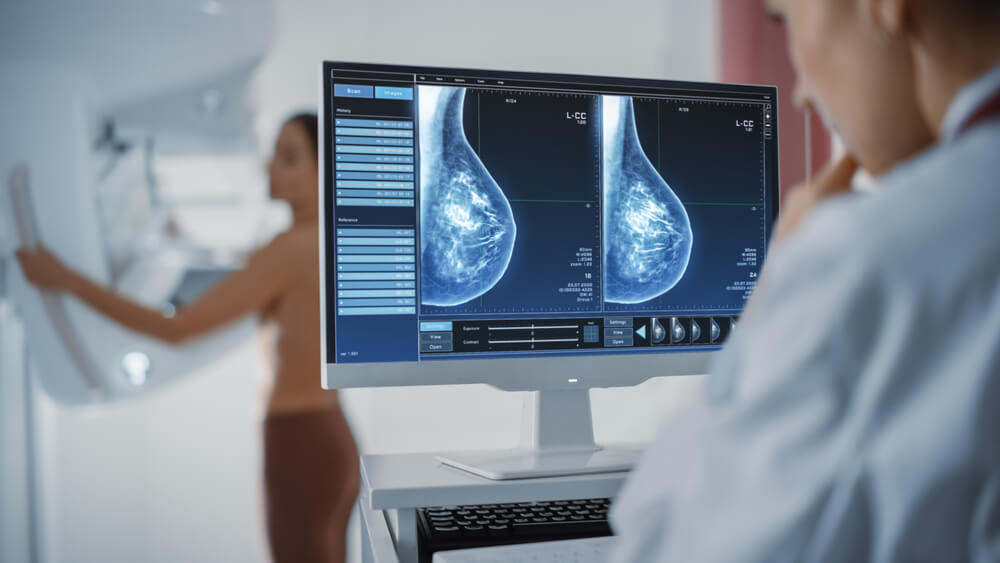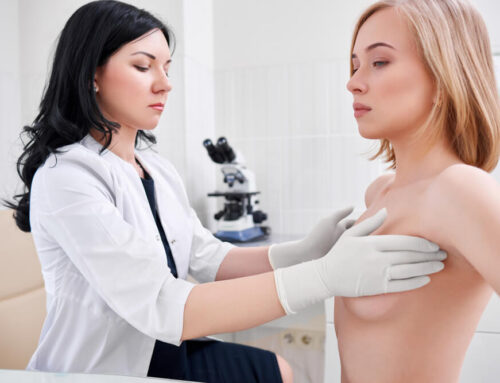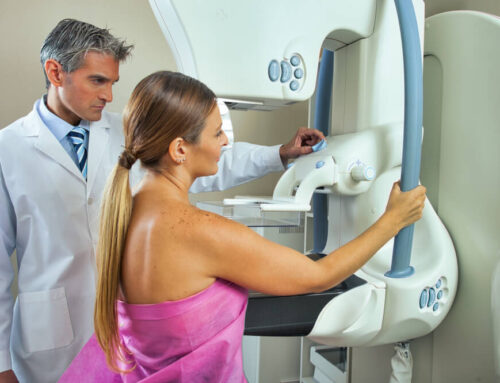Breast cancer is the most prevalent cancer that can affect women worldwide, and early detection remains crucial for better treatment outcomes. One factor that can impact early detection is breast density. Women with dense breast tissue may have a higher risk of breast cancer and may need additional screening tests beyond mammograms.
In this article, Breast Care Center Miami experts will explore what dense breast tissue is, how to determine if you have it, and the potential challenges it can present for breast cancer screening and diagnosis.
What Is Dense Breast Tissue?
Breast density refers to the amount of fibrous and glandular tissue in the breast compared to fat. Dense breast tissue contains more fibrous and glandular tissue and less fat. Breast density is divided into four categories based on mammographic appearance: heterogeneously dense, extremely dense, fatty, and scattered fibroglandular.
Fatty breasts have mostly fat and little fibrous or glandular tissue, whereas extremely dense breasts have predominantly glandular and fibrous tissue and little fat. Heterogeneously dense breasts have a mix of both fat and glandular/fibrous tissue, while scattered fibroglandular breasts have a primarily even distribution of glandular/fibrous tissue and fat.
How to Know If My Breasts Are Dense?

Breast density is typically determined by a mammogram, which produces images of the breast tissue. Radiologists use these images to classify breast tissue density into one of the four categories mentioned above. Women cannot determine their breast density by touch or feel. It is essential to know your breast density as it can impact breast cancer screening and diagnosis.
Why Does Breast Density Matter?
Breast density is critical because it can impact the accuracy of breast cancer screening tests. Dense breast tissue can mask or hide small breast masses and tumors, making them harder to detect on a mammogram. Additionally, dense breast tissue can make a mammogram look abnormal, even if no cancer is present, leading to false positives.
Women with extremely dense breasts have a higher breast cancer risk than women with fatty breasts. According to some studies, women with extremely dense breasts may have up to a sixfold increase in breast cancer risk compared to women with fatty breasts. This is because the increased glandular and fibrous tissue in dense breasts provides more opportunity for abnormal cell growth.
Is It Necessary to Get Mammograms With Dense Breasts?
Yes, women with dense breasts still need to have regular mammograms. Mammograms are the primary breast cancer screening method and remain the most effective tool for detecting breast cancer in its early stages. However, mammograms may not be as effective in detecting breast cancer in women with dense breasts, as mentioned earlier.
Women with dense breasts may need additional screening tests to supplement their mammograms. Supplemental screening tests include breast ultrasound and magnetic resonance imaging (MRI). Both of these tests use different methods to produce images of the breast tissue and can detect small breast masses and tumors that mammography may miss. However, both tests also have a higher rate of false positives, which can lead to unnecessary biopsies.
Some breast tumors are only detectable with the help of digital breast tomosynthesis (3D mammography) instead of standard (2D) mammography. In particular, according to some research, 3D mammography may benefit women with dense breasts. Although it is not yet widely accessible, it can be used as a screening test in addition to or in place of traditional mammography.
May Other Screening Tests Be Needed?
As mentioned, women with dense breasts and a higher risk of breast cancer may benefit from additional screening tests such as a breast ultrasound or MRI. Women with a moderate or low risk of breast cancer may not need further screening tests. The decision to have additional screening tests beyond a mammogram should be made in consultation with your doctor.
Other factors that can impact breast cancer risk include age, family history of breast cancer, and personal history of breast cancer. Women with a higher risk of breast cancer should discuss their risk and the need for additional screening tests with their healthcare provider.
What to Do in Case of Dense Breasts?
Being proactive about breast cancer screening and early detection is essential if you have dense breast tissue. Here are some steps you can take:
- Know your breast density: If you are over 40 years old and getting mammograms, ask your doctor about your breast density. Knowing your breast density can help you make informed decisions about your breast cancer screening and discuss the need for additional screening tests.
- Follow the recommended breast cancer screening guidelines: The American Cancer Society recommends annual mammograms for women over 40 years old with average breast cancer risk. Women with a higher risk of breast cancer may need to start screening earlier or have more frequent screening.
- Consider additional screening tests: Women with dense breasts and a higher risk of breast cancer may benefit from additional screening tests such as breast ultrasound or MRI. Talk to your healthcare provider about your personal risk and whether other screening tests are appropriate for you.
- Know your breast health: Get familiar with how your breasts look and feel and report any changes to your healthcare provider immediately. Some signs of breast cancer include a lump or thickening in the breast, changes in the breast’s size or shape, nipple discharge, and breast pain.
To Summarize

Breast density can impact breast cancer screening and early detection. Women with dense breasts may have a higher risk of breast cancer and may need additional screening tests beyond mammograms. It is essential to know your breast density and follow the recommended breast cancer screening guidelines. If you have dense breast tissue, talk to your healthcare provider about your risk and whether additional screening tests are appropriate. Being proactive about breast cancer screening and early detection can help improve treatment outcomes and save lives.
Get in Touch With Us at Breast Care Center Miami
Our goal is to provide each patient with individualized and expert medical services. We pride ourselves on helping our patients through challenging periods in their lives by providing them with unrivaled care. Experts in determining cancer risks provide pre- and post-treatment genetic advice to ensure your well-being at every stage. We cater our services to the unique requirements of each patient, regardless of their condition. Both ladies and gents are invited to seek our help, regardless of age.
Quality care in treating breast illnesses requires a trustworthy healthcare provider with extensive experience who keeps up with the latest developments in the field. At the Breast Care Center Miami, we are committed to giving each patient the utmost care and attention through a comprehensive diagnosis, careful assessment, and individualized treatment plan. Every patient receives attention specifically geared toward their needs.






